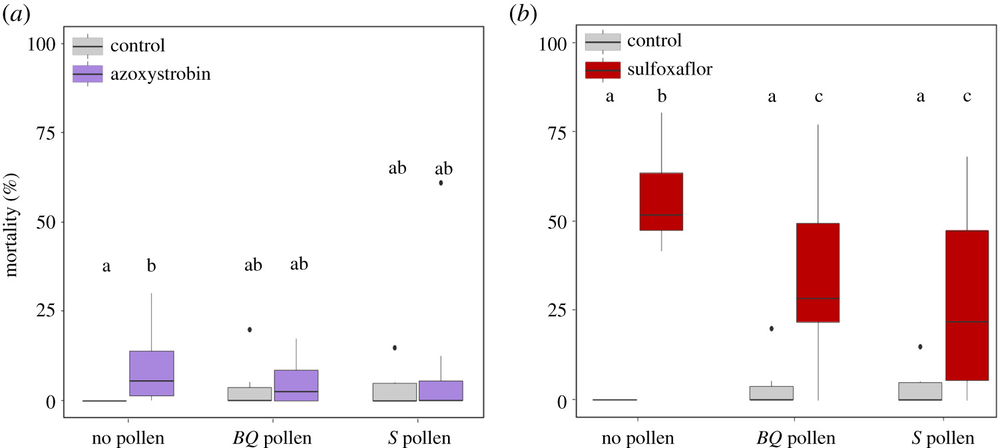pan-european assessment, monitoring, and mitigation of stressors on the health of bees
PoshBee research: Pollen nutrition fosters honeybee tolerance to pesticides
A new PoshBee paper was recently published in the international, peer reviewed journal "Royal Society Open Science". The article titled "Pollen nutrition fosters honeybee tolerance to pesticides" evaluates the toxicity of acute exposure and chronic exposures to field realistic and higher concentrations of azoxystrobin (fungicide) and sulfoxaflor (insecticide) in honeybees, and the bee mortality rate in dependence with pollen diets of differing quality.
The authors of the publication found that pollen intake reduced the toxicity of the acute doses of pesticides. Contrary to azoxystrobin, chronic exposures to sulfoxaflor increased by 1.5- to 12-fold bee mortality, which was reduced by pollen intake.

Acute toxicity of azoxystrobin (57.5 µg/bee) (a) and sulfoxaflor (36.2 ng/bee) (b) on bees fed with different pollen regimes. Data represent the 48 h post-exposure mortality of bees (n = 20 bees per cage and 10 cages per modality). Boxes indicate the first and third interquartile range with a line denoting the median. Whiskers include 90% of the individuals, beyond which circles represent outliers. Different letters indicate significant differences (Kruskal–Wallis tests followed by Dunn's multiple comparison test).
The scientists conclude that pollen consumption and the pollen’s quality can reduce the mortality risk caused by pesticides across different conditions of exposure. Researchers prove that the quality of pollen diets can substantially affect the toxicity of pesticides.
The results from this study also provide insights that could help explain the variability of bee responses that is often observed at a given dose or concentration of pesticide.
You can read about the study and its conclusions in more detail here.